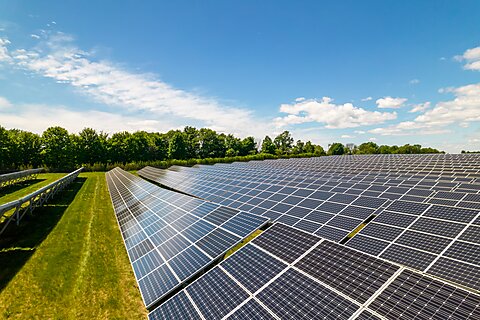
No Sunset in Sight for Solar Protectionism?
Is President Joe Biden more interested in fighting climate change or in sheltering domestic industries from foreign competition? We will find out not too long from now as his administration continues to grapple with what could be pivotal decisions on imports of solar energy products from China and elsewhere. If the president chooses trade protection, it will put the achievement of his professed climate goals further in jeopardy.
Seven domestic manufacturers in the solar industry have made this choice more difficult for the Biden administration by filing a petition simultaneously with the Department of Commerce and the US International Trade Commission (USITC), which seeks to levy tariffs on imports of solar cells from Vietnam, Cambodia, Thailand, and Malaysia. Chinese solar companies have been relocating to these four Southeast Asian countries to circumvent US tariffs imposed on imports of solar products from China, and the domestic petitioners claim that producers in these countries are dumping solar cells on the US market at prices below the cost of production while benefiting across borders from Chinese subsidies.
This is just the latest round in an ongoing legal slugfest between those who would impede solar imports (including these seven companies and their congressional and other political supporters) and those who would free them (including other parts of the US solar industry and most environmental groups, along with their supporters). It occurs against a political background in which President Biden appears to be competing in a downward spiral with his likely general election opponent, former President Donald Trump, over who can be the most protectionist on international trade.
The political vise tightening on Biden six months before the election is that, unlike Trump, he also wants to maintain the support of voters who prioritize preserving the environment, including by more ambitious national and international actions to address climate change. Presumably, the president also truly does want to counter climate change. (For his part, Trump seems to have no such ambitions, thus making his fervent advocacy for any and all additional trade protectionism much easier.)
If it is granted, this plea for new solar tariffs would not be implemented until sometime in 2025. But the Department of Commerce (DOC) will decide whether to proceed with an investigation sometime in May. A preliminary DOC determination that there are illegal dumping and subsidies would then take between four and six months. The USITC will determine whether the domestic industry is suffering material injury because of the imports of the dumped or subsidized products. A legal outcome could happen just before the November election.
These new tariffs would be in addition to tariffs on imports of Chinese‐made solar products that are trans‐shipped through these Southeast Asian countries to avoid still other existing US tariffs on solar imports from China. Responding to concerns expressed by US solar panel installers, US developers of solar farms, and other companies in the broader US solar industry, as well as by environmentalists, that high tariffs on solar imports could limit the continued expansion of US solar energy use, President Biden delayed implementation of those tariffs for two years. He also vetoed legislation that would have reinstated them. That two‐year delay will end in June.
In addition to the competition from foreign competition provided by tariffs, US solar manufacturers such as the seven companies that have filed the new petition have benefited from billions of dollars of tax credits for new facilities that were created by President Biden’s multi‐trillion dollar venture into industrial policy, the Inflation Reduction Act (IRA). The jobs in the solar industry resulting from these subsidies have been trumpeted as a triumph of the IRA. Yet, as my Cato colleagues Travis Fisher and Alex Nowrasteh have pointed out, “Economic activity created via subsidies does not indicate an increase in economic activity overall. Likewise, jobs created by subsidies do not indicate an increase in jobs overall. There is a net cost to society when subsidies and other industrial policies distort markets.”
If Chinese solar producers or solar producers in the four Southeast Asian countries that have been targeted by this petition are violating international trade laws, and if it can be shown that the US industry is being harmed, then trade action is warranted. But, overall, as climate policy, what will be gained from such action in curbing climate change, or, for that matter, in building a domestic solar energy supply chain that can compete here and throughout the world? Some of the tariffs already in place on solar imports from China are “safeguard” tariffs, which do not even involve an allegation of unfair trade practices. Isolation from foreign competition is not a national strategy for competitiveness.
According to the Department of Energy, solar energy could account for 40 percent of US electrical power by 2035 while employing 1.5 million Americans—and without raising electricity prices. This, the DOE estimates, will require current domestic solar capacity almost to double by that date. With the glut on the global market, prices of solar panels have fallen by 50 percent in the past year. Why, at a time when Americans are turning more and more to solar energy and when business investors are moving increasingly into the solar industry, should the federal government want to raise consumer prices and create further uncertainty in the solar market? That’s no way to help Americans pay their utility bills and fight climate change.
To reiterate what I have written here before, “President Biden has continually emphasized the importance of helping the climate in his agenda. Maintaining these tariffs will do little to achieve that goal. Continuing to impose the artificial expense caused by the tariffs only adds to the prices of renewable alternatives such as solar energy, making them less appealing.” A decision by his administration “not to restore freer trade in these products could have significant implications for Americans looking to expand their consumption of solar energy and, therefore, solar energy products. Making those products more expensive and more difficult to obtain is nonsensical as a matter of public policy.”



